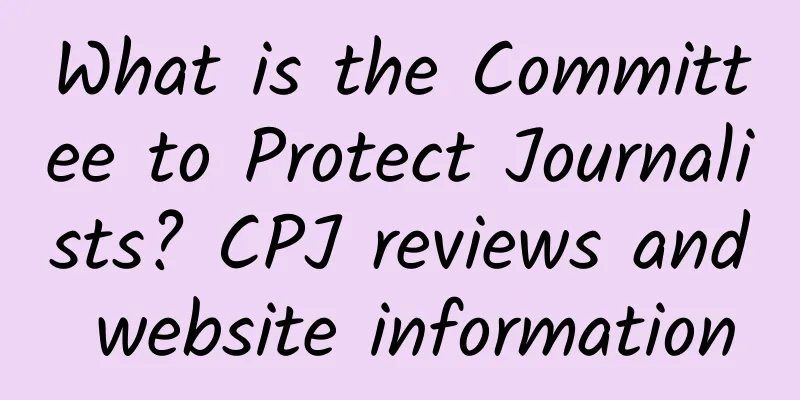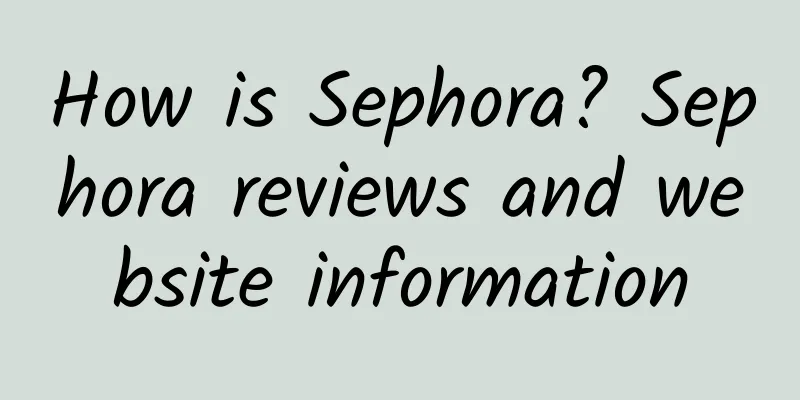What is the Committee to Protect Journalists? CPJ reviews and website information

|
What is the Committee to Protect Journalists website? The Committee to Protect Journalists (CPJ) is an international non-profit organization founded in 1981 and headquartered in New York. Its main responsibility is to defend the rights of journalists and promote global press freedom. Website: www.cpj.org Committee to Protect Journalists: An international force for press freedom around the worldIn today's world, press freedom and journalist safety have become important indicators of a country's degree of democracy. However, in many places, journalists face unprecedented threats - from political oppression, economic control to physical attacks and even murder. In order to meet these challenges, an international non-profit organization called the Committee to Protect Journalists (CPJ) came into being. Founded in 1981, the Committee to Protect Journalists, headquartered in New York City, is an independent organization dedicated to safeguarding global press freedom and journalists' rights. The organization provides support and protection for journalists around the world through monitoring, advocacy, and education. CPJ's work is not limited to exposing violence against journalists, but also involves promoting government policy reforms, providing legal aid, and conducting public awareness campaigns. As an international organization with a wide range of influence, CPJ has become an indispensable guardian of the global press. Historical Background and MissionThe history of the Committee to Protect Journalists dates back to 1981, when several American journalists co-founded the organization in response to the growing risks faced by journalists around the world. At its inception, CPJ's goal was to focus on journalists who were persecuted for reporting on sensitive topics and to improve their situation by publicly condemning those who pressured them. Over time, CPJ has gradually developed into an international organization with a wider coverage and greater influence. CPJ's core mission is to promote press freedom and protect journalists from any form of abuse. Specifically, its work includes the following aspects:
As an independently operated non-governmental organization, CPJ's funding mainly comes from individual donations, foundation grants, and corporate sponsorship. This diversified funding structure ensures the independence and impartiality of its work. Core projects and achievementsCPJ has a number of important projects, ranging from crisis response to long-term research. Here is an overview of some key areas: 1. Monitoring and reportingCPJ is known for its detailed annual reports that provide comprehensive analysis of the state of press freedom around the world. For example, the Imprisoned Journalists report lists journalists who are imprisoned for their work each year, while the Journalist Killings Database tracks all confirmed killings of journalists since 1992. Through these data-driven studies, CPJ reveals patterns of violations of press freedom and provides a basis for decision-making. 2. Emergency response mechanismWhen a journalist’s life is threatened, CPJ is able to intervene quickly and provide practical help. This may include paying for medical expenses, arranging evacuations, or contacting local partners to intervene. In addition, CPJ has established an emergency fund to support journalists and their families in extreme situations. 3. Advocacy and lobbyingCPJ actively participates in policy discussions on the international stage, such as UNESCO's World Press Freedom Day. It also writes directly to national leaders, asking them to take measures to protect the safety of journalists. In recent years, CPJ has successfully pushed some countries to change laws to reduce restrictions on the media industry. 4. Education and ResourcesIn order to help journalists better cope with occupational risks, CPJ has produced a series of guides and manuals, such as the Journalist Security Guide. These materials combine theory and practice to provide practical advice for different types of journalists. In addition, CPJ also holds online seminars and offline training courses to enhance practitioners' professional skills and safety awareness. Global influence and cooperation networkAs an international organization, CPJ has established extensive partnerships around the world. These partners include other non-governmental organizations, academic institutions, news media, and individual journalists. Through this collaboration, CPJ is able to expand its influence and allocate resources to where they are most needed. For example, in the Middle East, CPJ works closely with local human rights groups to investigate and document violence against journalists. On the African continent, CPJ supports the development of emerging media and encourages young people to join the journalism profession. In addition, CPJ participates in international alliances, such as the International Network of Civil Liberties Organizations, to share experiences and coordinate actions with other similar organizations. Challenges and future prospectsDespite its remarkable achievements, CPJ still faces many challenges. First, with the advancement of digital technology, cyber attacks and privacy violations have become new forms of threats. To this end, CPJ is strengthening its research and services in cybersecurity to help journalists resist hacking and data leaks. Second, some countries are hostile to foreign NGOs and limit their space to operate. In this context, CPJ must find innovative ways to indirectly influence the policy environment in target regions, for example, by supporting local initiatives or using social media platforms to spread information. Looking ahead, CPJ plans to further expand its geographical coverage and technical capabilities. On the one hand, it will continue to deepen cooperation with existing partners, and on the other hand, it will explore the potential needs of emerging markets. At the same time, CPJ is committed to maintaining transparency and accountability to ensure that every penny is spent wisely. How to get involved and support CPJFor those who care about press freedom and journalist safety, there are many ways to get involved in CPJ’s work:
In short, the Committee to Protect Journalists is not only a strong supporter of journalists, but also an important ally of all citizens in their fight for the right to know and social justice. By supporting CPJ, everyone can contribute to building a more open and inclusive world. ConclusionThe Committee to Protect Journalists reminds us that press freedom is not a right to be taken for granted, but a right that must be constantly defended. In an era of uncertainty, organizations like CPJ play a vital role. They not only record facts, but also shape public opinion; they not only protect individuals, but also promote institutional change. Let us work together to safeguard the power of the truth. |
>>: How is the Areva Group? Areva Group reviews and website information
Recommend
How is Chalmers University of Technology? Chalmers University of Technology reviews and website information
What is the website of Chalmers University of Tech...
What fruits can pregnant women eat? What fruits are good to eat during pregnancy?
The mother has just given birth and her body is w...
How is Sanmei Electric? Sanmei Electric review and website information
What is Mitsumi Electric? Mitsumi Electric Co., Lt...
What is Harrods like? Harrods reviews and website information
What is Harrods? Harrods is the most famous depart...
How to ripen durian meat? Durian ripening method
Durian is a tropical fruit, rich in nutrients and...
How to soak dried dendrobium in water? How to soak dried dendrobium in water?
Many people know that dried dendrobium can be use...
The efficacy and function of tassel dendrobium How much does tassel dendrobium cost per pound
Dendrobium officinale is a parasitic plant with a...
Is the calorie content of hairtail fish high? How many calories does hairtail fish have?
Hairtail fish has high nutritional value, but doe...
How is Veola? Veola review and website information
What is Veola? Veola is a famous Indian plant hair...
The efficacy and common eating methods of burdock
When it comes to burdock, many people think of it...
Methods and benefits of watermelon peel facial mask
Summer is the season for eating watermelon. The r...
How to make lily, lotus seeds and mung bean porridge
How many of you know how to make lily, lotus seed...
How is Inbusa Financial Group? Inbusa Financial Group Reviews and Website Information
What is the website of Grupo Inbursa? Grupo Inburs...
Milan flower cultivation methods and precautions
Milan is an evergreen ornamental plant. The leave...
What are the benefits of drinking lemon water? How to make lemon water
Lemon is a fruit with a relatively sour taste. Ma...









